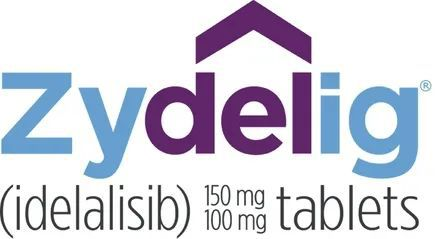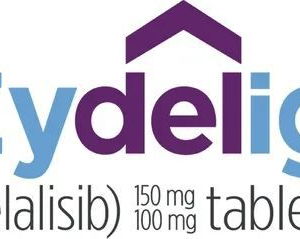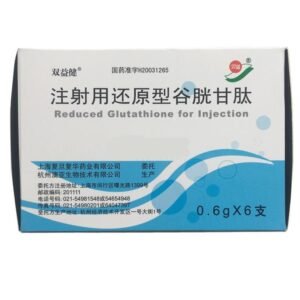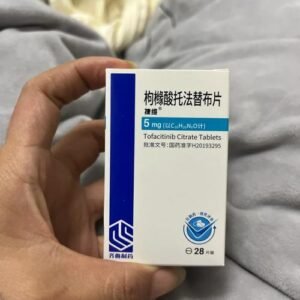Idelalisib tablets
Delalisib is a targeted therapy drug approved to treat certain types of leukemia and lymphoma.
Idelalisib is a kinase inhibitor. It blocks the action of certain proteins (kinases) and pathways in cancer cells to slow or stop the growth and spread of cancer.
Idelalisib comes as a tablet that is taken by mouth twice daily. It can be used alone or in combination with other drugs.
Idelalisib mechanism of action
Idelalisib is a kinase inhibitor that works by blocking the action of a protein (kinase) called phosphoinositide 3-kinase (PI3K) delta, which is found in large amounts in certain types of cancer.
PI3K delta plays an important role in the activation and proliferation of B cells in cancer; blocking this kinase helps stop the growth and spread of cancer cells. Other actions that idelalisb inhibits and blocks include signaling of the CXCR4 and CXCR5 pathways, which are involved in the spread of B cells to the bone marrow and lymph nodes.
What is idelalisb used for?
Idelalisib is a targeted therapy that can be used alone or in combination with other drugs. Approved to treat: Chronic lymphocytic leukemia (CLL), a cancer in the blood and bone marrow, that comes back; Certain types of non-Hodgkin lymphoma (NHL), a cancer of the lymphatic system, that comes back, specifically: Follicular B-cell non-Hodgkin lymphoma; Small lymphocytic lymphoma (SLL), a cancer that starts in the lymph nodes.
What are the side effects of idelalisb?
Idelalisb may cause a range of side effects, from mild to severe.
Common side effects include: loss of appetite; increased thirst; low energy; trouble sleeping; night sweats; headache; fever; cough; rash; high blood sugar; indigestion; nausea; stomach pain; joint pain; swelling in the hands, feet, ankles, or lower legs; pneumonia.
Severe side effects include: infection; liver damage; holes or tears in the stomach or intestines; pneumonia.
What is the remission rate for idelalisb?
The effectiveness of idelalisb has been demonstrated in clinical trials, where the drug was tested in patients with non-Hodgkin lymphoma (NHL), chronic lymphocytic leukemia (CLL), and small lymphocytic lymphoma (SLL).
Gilead, the manufacturer of the brand name idelalisb, conducted a clinical trial of idelalisib in 72 patients with a form of NHL called relapsed follicular lymphoma. Of those 72 patients, 14% had a complete response and 42% had a partial response.
Gilead also reported that in a trial of 26 patients with SLL, 58% of patients taking idelalisb experienced a positive treatment response. Another study in 2019 showed that when combined with rituximab in 220 patients with relapsed CLL, idelalisb produced a treatment response in 83.6% of patients, and the median progression-free survival for patients who switched from idelalisb plus rituximab to idelalisb alone was 20.3 months.
Idelalisib dosage?
Idelalisib comes as a tablet with a recommended dose of 150 mg taken orally twice daily, at approximately the same time each day. It can be taken with or without food. Idelalisib oral tablets should be swallowed whole with a glass of water and should not be chewed, split, or crushed.
Patients should avoid consuming grapefruit and grapefruit juice while taking idelalisib.
Patients who miss a daily dose can still take the tablet within six hours of the normal dose. Patients should not take two doses of idelalisb at the same time to make up for a missed dose.
Share:
Products
Our offers
Health Classification
Let us work together to protect precious health































